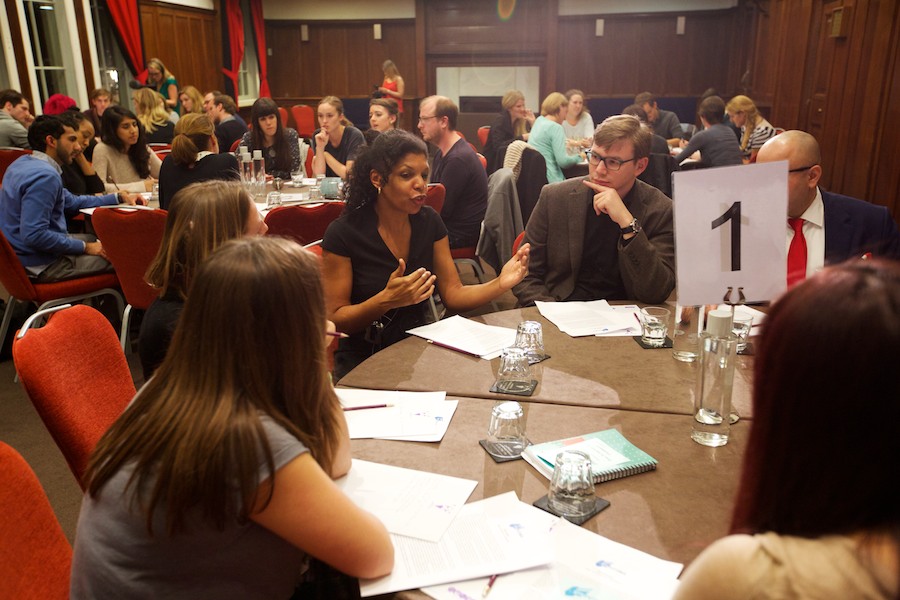Missed our 'How to Survive as a Freelancer' event? Catch up on what you missed.
The latest RTS futures event offered essential survival tips for young TV talent working in the precarious freelance world. It's hard enough for newcomers to land their first jobs in the industry, but keeping the work coming in and building a career can be gruelling.
Rejection is an occupational hazard, warned RDF Head of Entertainment Development Neale Simpson, who introduced and co-produced the event. "At entry level, for every job we advertise, we get 40 to 50 applicants," he revealed. Those who succeed, he added, "have grasped the idea that it's not about what we can do you for you, but what you can do for us".
Recruiting freelancers
During the evening, an expert group of talent managers and production staff worked their way around the room, offering advice to the RTS Futures members. When recruiting, Factual Entertainment Series Producer Martin Conway said he looked for freelances with "ideas, who are analytical, have critical thinking and are interested in storytelling".
BBC Talent Executive Caroline Carter was positive about opportunities at the corporation where, in her area of factual programming, freelancers make up half the workforce. "Most of the hot talent is freelance," she said. "The people who freelance are earning more, they're being promoted more quickly, they have a range of opportunities at different companies and, to a certain extent, they can choose the projects they work on. The in-house staff are trapped - they can only work on the commissions we're getting."
Factual Executive Producer Kathryn Taylor had complied a list of dos and don'ts for the event. "Target those employees whose output you enjoy - there is no point in trying to deliver on a job if you're not interested in the programme you're making," she advised.
Once they have secured a job, she added, freelancers have to show discretion in voicing their opinions because news travels fast in the industry. "People are unaware of how small television is - don't go into a job and start slagging off the production manager," Taylor said. "Always be positive and respectful with the people you are working with because you will meet them again."
Choosing a specialism Dawn Beresford shared advice with RTS Futures members (Credit: Paul Hampartsoumian)
Dawn Beresford shared advice with RTS Futures members (Credit: Paul Hampartsoumian)
The experts stressed that young freelancers should take their time before specialising. "It's very easy to get pigeonholed within the industry," warned Dawn Beresford, Creative Executive at the independent production company CPL. "At the beginning of your career, when you're a runner or researcher, take the opportunity to test the genres out and work out which ones appeal to you."
Production Manager Jude Winstanley argued that freelances needed good communication skills to win regular employment. "You have to work hard to maintain relationships after you've finished a job," she said. "Add them to your social media groups and make the effort to stay in touch."
"From my experience, talent managers use social-media platforms to look for people with specific experience, such as they can speak French or drive an HGV," Winstanley added.
It can involve a lot of effort and heartache, but over time the best freelancers are able to cement their reputation and make themselves indispensable to programme-makers.
"We've got freelancers who are like gold dust - we get them back time and time again," concluded RDF's Simpson.
The RTS Futures event, "How to survive as a freelancer", was held on 29 October at the Hallam Conference Centre. The producers were Neale Simpson, Carrie Britton and Susie Worster.
Report by Matthew Bell
Film by Rebecca Stewart @bexstewart1

